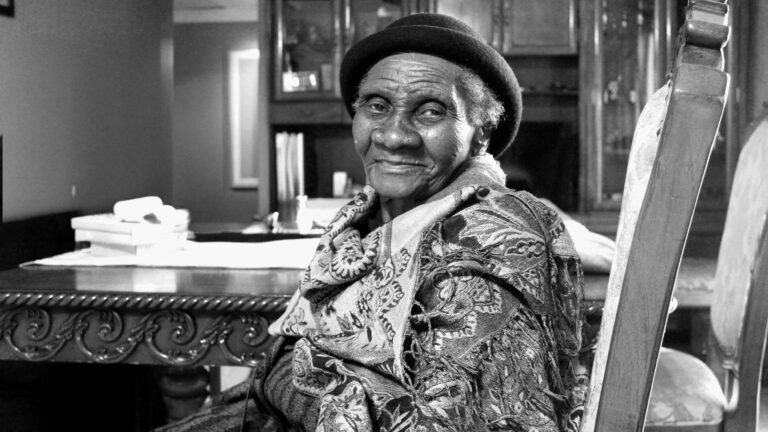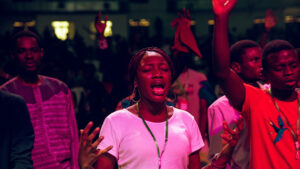The first question asked in the New City Catechism (NCC) is this: “what is our only hope in life and death?” The answer is “that we are not our own but belong, body and soul, both in life and death, to God and to our Saviour Jesus Christ” (see Romans 14:7-8).
Memorisation is hard work. But it forces you to turn over these truths in your mind
Personally, I have benefitted from and delighted in rediscovering catechisms. Growing up I was convinced it was something only my Roman Catholic friends did. But in recent years, both as the result of receiving a physical copy of the NCC and joining a Presbyterian church, I have experienced the positive effects of a question and answer approach to outlining one’s faith. Memorisation is hard work. But it forces you to turn over these truths in your mind, reflecting on and revisiting them regularly. Ultimately, the aim is that they will nestle in the heart, reassuring the believer throughout her life.
Translating The New City Catechism for Africa
In recent months I have frequently reflected on the first and last questions of the New City Catechism. For both consider the Christian’s hope. And because these have encouraged me, I believe they will serve others. So we’ve undertaken to translate the first question into a few different African languages.
Writing in the 18th century, one of Charles Wesley’s hymns goes thus: “O for a thousand tongues to sing / My great Redeemer’s praise, / The glories of my God and King, / The triumphs of his grace.” My prayer is this: that many African tongues would recite these truths – rejoicing in our God’s great glory and resting in his glorious promises.
Amharic
ጥያቄ: በሕይወት ይሁን በሞት ብቸኛው ተስፋችን ምንድነው?
መልስ: በአካል ይሁን በነፍስ፣ በሕይወት ይሁን በሞት እኛ የእግዚአብሐር እና አዳኛቸን የኢየሱስ ክርስቶስ እንጂ የራሳችንአይደለንም፡፡ (ሮሜ 14፡7-8)
Chichewa
Funso: Kodi chiyembekezo chathu pa moyo ndi imfa ndi chiyani?
Yankho: Kuti sitili aife eni, koma kuti kuyambira thupi ndi mzimu, mmoyo kapena mu imfa, ndife ake a Mulungu ndi a Mpulumutsi wathu Yesu Christu.
French
Question: Quelle est notre unique espérance dans la vie comme dans la mort?
Réponse: Notre unique espérance est d’appartenir corps et âme, dans la vie, comme dans la mort, non à nous-mêmes, mais à Dieu, et à notre Sauveur Jésus-Christ.
Hausa
Tambaya ta farko: Menene kadai begenmu a rayuwa da mutuwa?
Amsa: Don mu ba mallakar kanmu bane. Amma ko a cikin jiki ko a ruhu, ko a rayuwa, ko a mutuwa mu na Ubangiji Yesu almasihu mai ceto ne. (Romawa 14:7-8)
Portugese
Resposta: Qual é nossa única esperança na vida e na morte?
Pergunta: Que não somos de nós mesmos, mas pertencemos, de corpo e alma, na vida e na morte, a Deus e a nosso Salvador, Jesus Cristo.
Shona
Mubvunzo: Tine tariro ipi muhupenyu nemurufu?
Mhinduro: Tariro yedu iri mukuziva kuti hatiziri vedu, tiri vaMwari nemuponesi wedu Jesu Kristu zvese panyama nepa mweya uye mukurarama kana mukufa (Varoma 14:7-8).
Swahili
Swali: Ni nini tumaini lako maishani na kifoni?.
Jibu: Ya kuwa hatuishi kwa ajili yetu pekee, lakini katika mwili na roho, katika maisha na kifo, tunaishi kwa ajili yake Mungu Baba na Mwokozi wetu Yesu Kristo (Warumi 14:7-8).
Xhosa
Umbuzo: Yinton ithemba lethu kubomi nasekufeni?
Impendulo: Kukuba asingabethu kodwa singabakaThixo no Yesu uMsindisi wethu, enyamweni nasemoyeni, empilweni nasekufeni (KwabaseRoma 14:7-8).
Yoruba
Ìbéèrè: Kí ni ìgbẹ́kẹ̀lé wa nínú ikú àti nínú wíwá lááyé?
Ìdáhùn: Ìgbẹ́kẹ̀lé wa ni wípé ní ara àti ní ẹ̀mí, nínú ikú àti nínú wíwà lááyé, ti Ọlọ́run àti Jésù Kristì Olùgbàlà ni a jẹ́. A kìí se ti ara wa (wo Romu 14:7-8).
Zulu
Umbuzo wakuqala: Liyini ithemba lethu empilweni nasekufeni?
Impendulo: Asiziphethe kodwa umzimba, nomphefumulo, ekuphileni Kanye nasekufeni singaba kaNkulunkulu kanye noMsindisi wethu uJesu Kristu (KwabaseRoma 14:7-8).
The Next Step…
In conversations with Christians from around the continent I have been overjoyed to learn that translations of the historical catechisms and creeds exist and are being employed. In fact, it was my discovery of a Swahili translation of the Westminster Confession of Faith (WCF) that gave me the idea to pursue this project. That process has resulted in unearthing a full translation of the New City Catechism in Xhosa. In addition, an entirely new translation in Swahili is in process. As we publish this article we are in conversation with both African translators and Crossway about providing our continent with this great resource in their own languages.
O, indeed, for a thousand tongues to sing and recite the triumphs of our God’s grace.














